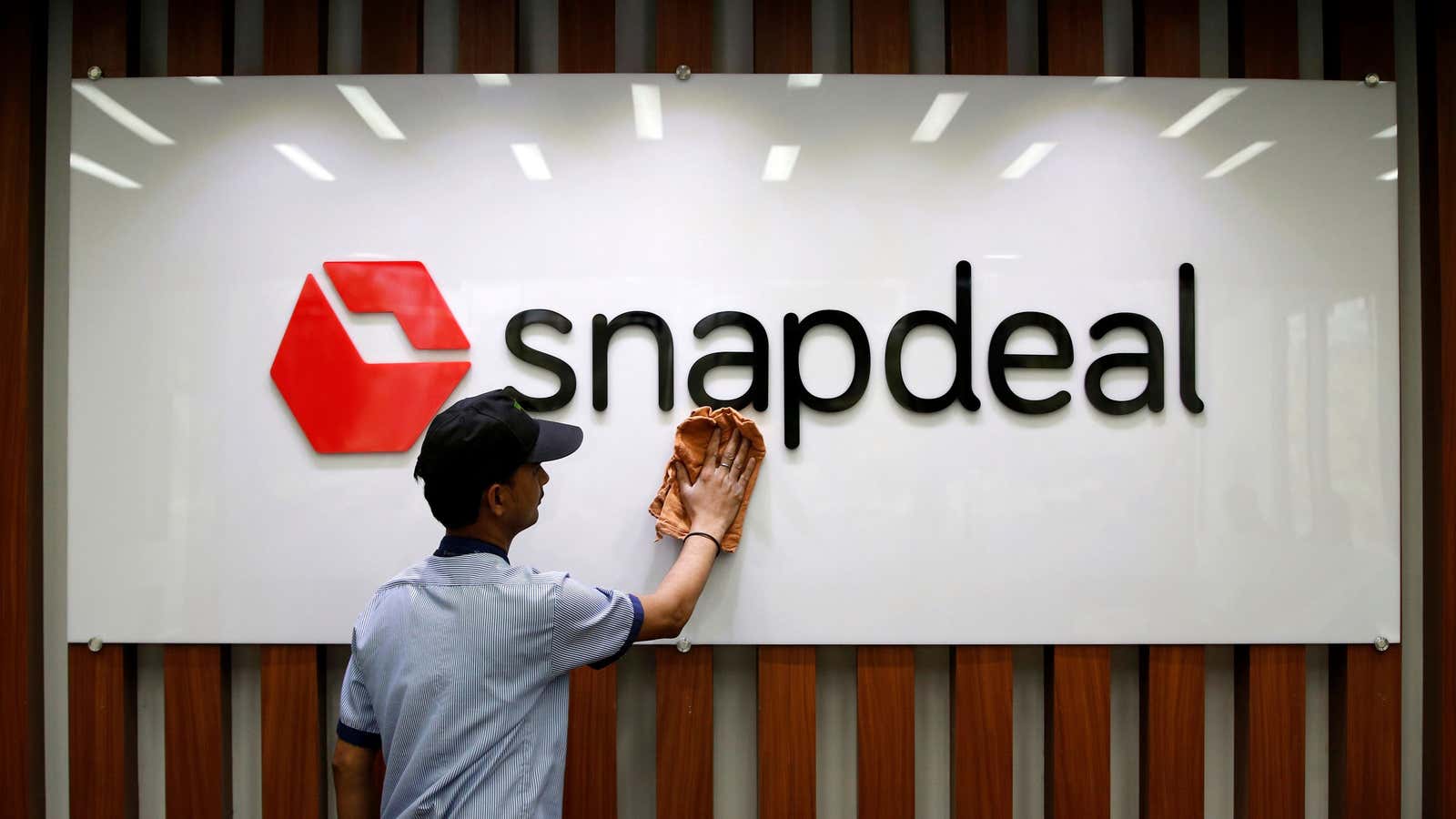Despite a tough year, Snapdeal isn’t ready to throw in the towel just yet.
On May 07, Ahmedabad-based e-commerce firm Infibeam said (pdf) it is buying Unicommerce eSolutions, a warehouse management firm, from Snapdeal for Rs120 crore ($18 million) in a non-cash deal. Acquired by Snapdeal in 2015, Unicommerce services more than 10,000 sellers, brands, and online retailers including Myntra, Jabong, and Lenskart.
The sale of Unicommerce is a “continuation of the Snapdeal 2.0 plan to divest and focus on our core consumer e-commerce business, ” Snapdeal’s chief strategy and investment officer Jason Kothari told the Economic Times. The deal is expected to close within three to five months.
The Snapdeal 2.0 strategy was first introduced by the company in July 2017 after it shelved talks for a $950 million merger with rival Flipkart. As part of the strategy, co-founders Kunal Bahl and Rohit Bansal, who together own a 6.5% stake in Snapdeal, had decided to lead the company in a ”new and compelling direction” by selling non-core assets and focussing on the core e-commerce business.
In keeping with the strategy, the company has already sold its mobile wallet business Freecharge to Axis Bank for Rs385 crore ($57 million), and its logistics arm, Vulcan Express, to the Kishore Biyani-led Future Group for Rs35 crore.
Housekeeping or cleaning?
The jury is still out on what these moves mean for Snapdeal.
While a former top executive of Snapdeal suggested that this most recent move is just a part of the company’s plan, analysts are not too sure.
“The ball was rolling on this for a long time and they just found a buyer,” the former executive, who did not wish to be named, told Quartz. “The plan was to get as much cash as possible to elongate the runway on the core biz by selling everything auxiliary.”
However, Yugal Joshi, a startup analyst at the Everest Group, said that the kind of businesses Snapdeal is letting go off are essential for an e-commerce model to work.
“This product (Unicommerce) can be considered core to the e-commerce business since it’s into warehouse management software. They already sold payments, which is possibly more core to e-commerce,” Joshi told Quartz. “But it’s the prerogative of the management to define what is core and non-core.”
One thing is for sure: these sales are likely to help the company stay afloat in the near-term. “I think they’re trying to get as much cash in, which will give them the ability to invest or at least realise whatever value they can,” said Harish HV, an independent consultant and former partner at Grant Thornton India LLP.
Both HV and Joshi argue that after Amazon’s failed bid for Flipkart, Snapdeal could be trying to paint itself pretty to capture American e-tailer’s fancy. ”The e-commerce bus has already sailed for Snapdeal so they’re trying to be as relevant as possible to make themselves attractive (to Amazon),” Joshi said.
Also, Snapdeal doesn’t seem very keen on pushing ahead alone considering its heavy silence on the marketing front. “We don’t have much news. There’s not an adequate amount of promotion, ads, or any other push to achieve sales compared to the other players,” said HV. Flipkart and Amazon both run massive TV commercial campaigns, and even post full-spread advertisements in daily newspapers.
Whatever happens, this isn’t the end of the road for Snapdeal. Either the company will keep getting leaner and chug along, like it has been doing so far, or find investors to back it up. Stay tuned.
